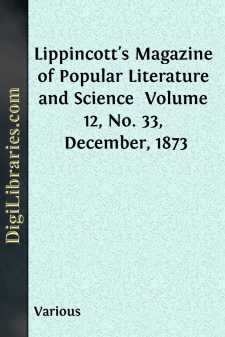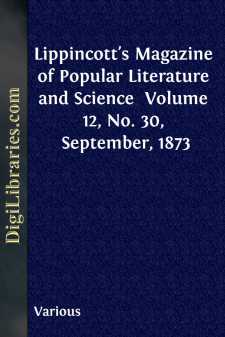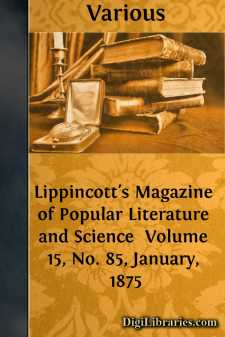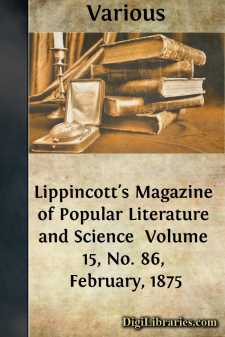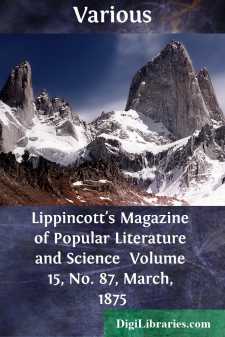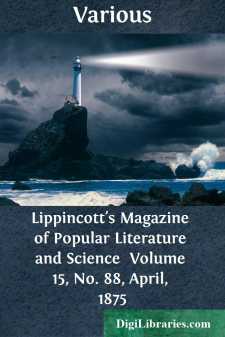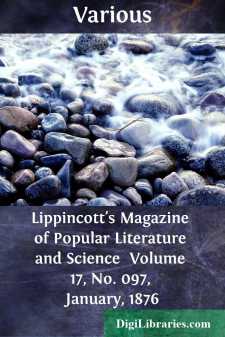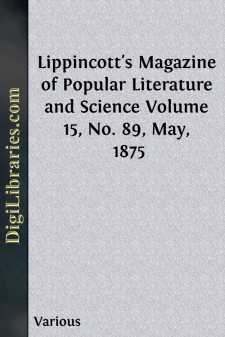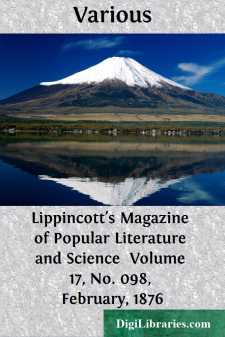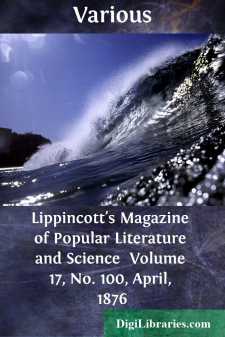Categories
- Antiques & Collectibles 13
- Architecture 36
- Art 48
- Bibles 22
- Biography & Autobiography 813
- Body, Mind & Spirit 142
- Business & Economics 28
- Children's Books 14
- Children's Fiction 11
- Computers 4
- Cooking 94
- Crafts & Hobbies 4
- Drama 346
- Education 46
- Family & Relationships 57
- Fiction 11829
- Games 19
- Gardening 17
- Health & Fitness 34
- History 1377
- House & Home 1
- Humor 147
- Juvenile Fiction 1873
- Juvenile Nonfiction 202
- Language Arts & Disciplines 88
- Law 16
- Literary Collections 686
- Literary Criticism 179
- Mathematics 13
- Medical 41
- Music 40
- Nature 179
- Non-Classifiable 1768
- Performing Arts 7
- Periodicals 1453
- Philosophy 64
- Photography 2
- Poetry 896
- Political Science 203
- Psychology 42
- Reference 154
- Religion 513
- Science 126
- Self-Help 84
- Social Science 81
- Sports & Recreation 34
- Study Aids 3
- Technology & Engineering 59
- Transportation 23
- Travel 463
- True Crime 29
Sort by:
by:
Various
THE NEW HYPERION. FROM PARIS TO MARLY BY WAY OF THE RHINE. My first dinner in the avenue of Ettlingen followed upon the twelve-barreled bath, but was far from being so glacial a refreshment. As I descended, quite pink and glowing, I found eight or ten individuals in the dining-room. They were French and Belgians, and exchanged a lively conversation in half a dozen provincial accents. The servants too...
more...
by:
Various
III.—THE FEAST OF SAINT ATHANASIUS. THE PAULISTS.As I parted from my stout old friend Joliet, I saw him turn to empty the last half of our bottle into the glasses of a couple of tired soldiers who were sucking their pipes on a bench. And again the old proverb of Aretino came into my head: "Truly all courtesy and good manners come from taverns." I grasped my botany-box and pursued my promenade...
more...
by:
Various
THE NEW HYPERION. FROM PARIS TO MARLY BY WAY OF THE RHINE.CÆSAR'S PENNY.In leaving Cologne for Aix-la-Chapelle you turn your back to the river—a particular which suited my mood well enough. The railway bore us away from the Rhine-shore at an abrupt angle, and in my notion the noble Germanic goddess or image seemed at this point to recede with grand theatric strides, like a divinity of the stage...
more...
by:
Various
FOLLOWING THE TIBER. CONCLUDING PAPER. TEMPLE OF THE CLITUMNUS. One branch of the little river which encompasses Assisi is the Clitumnus, the delight of philosophers and poets in the Augustan age. Near its source stands a beautiful little temple to the divinity of the stream. Although the ancients resorted hither for the loveliness of the spot, they did not bathe in the springs, a gentle superstition...
more...
by:
Various
AN ESCAPE FROM SIBERIA.RUFIN PIOTROWSKI.All the languages of continental Europe have some phrase by which a parting people express the hope of meeting again. The French au revoir, the Italian ÐÑ rivederla, the Spanish hasta mañana, the German Auf Wiedersehen,—these and similar forms, varied with the occasion, have grown from the need of the heart to cheat separation of its pain. The Poles...
more...
by:
Various
CONCLUDING PAPER.FOREST OF COCKATOOS.People who go to Australia expecting every other man they meet to be a convict, and every convict a ruffian in felon's garb, will assuredly find themselves mistaken. And if contemplating a residence in Sydney or Melbourne they need not anticipate the necessity of living in a tent or a shanty, nor yet of accepting the society of convicts or negroes as the only...
more...
by:
Various
I.—GENERAL PROGRESS. This of ours is a conceited century. In intense self-consciousness it exceeds any of its late predecessors. Its activity in externally directed thought is accompanied by an almost corresponding use of introverted reflection. Its inheritance, and the additions it has made, can make or will make thereto, supply an ever-present theme. It delights to stand back from its work, like...
more...
by:
Various
The lot of the foreigner in Buenos Ayres during the rainy season is not an enviable one. The Englishman who finds himself in that city when the rain falls for weeks at a time becomes a victim to the spleen, the American to "the blues," the Frenchman to ennui. The houses, built with a view mainly to protection against the torrid heats of summer, are not adapted to shelter their inmates from the...
more...
by:
Various
THE CENTURY—ITS FRUITS AND ITS FESTIVAL. II.—AMERICAN PROGRESS.POST-OFFICE DEPARTMENT BUILDING AT WASHINGTON.From showing the world's right to the epoch of '76, and sketching the progress of the century in its wider aspect, a natural transition is to the part played in illustrating the period by the people from whose political birth it dates, and who have made the task of honoring it...
more...
by:
Various
IV.—THE CENTENNIAL EXPOSITION UNDER ROOF.THE BRIDGE ACROSS LANSDOWNE RAVINE, CONNECTING MEMORIAL AND HORTICULTURAL HALLS.None of the European exhibitions we have sketched partook of the nature of an anniversary or was designed to commemorate an historical event. Some idea of celebrating the close of the calendar half-century may have helped to determine the choice of 1851 as the year for holding the...
more...


